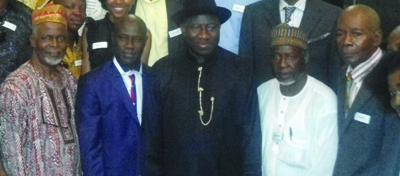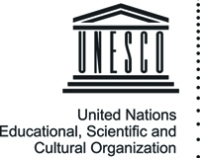 Nigeria, is undoubtedly gifted with creative citizens where art naturally comes as second nature, hence, for all genres and forms of art, there readily is available an immense pool of resources, talents that awe the visitor or foreigner alike.
Nigeria, is undoubtedly gifted with creative citizens where art naturally comes as second nature, hence, for all genres and forms of art, there readily is available an immense pool of resources, talents that awe the visitor or foreigner alike.
However, among all the genres of art, it is rather obvious that photography has become the least appreciated or better still most under-appreciated. Not from a lack of enthusiasts or professionals but apparently from dearth of government and corporate support and assistance.
Photographers abound in the country as with the interest buoyed by the advent of the camera phones which on its own has become arguably the only determining factor on the choice of a mobile phone purchase by a Nigerian today.
The camera phone is a necessary accessory for the Nigerian of the 21st century largely on the strength of his personal love and devotion to pictures as having become weary of daily shuttling to the professional photo studious to capture an image of himself.
The Nigerian believes nobody captures him more than himself. In the country now, everybody has turned a photographer. In the same vein, the prospects of photography as an industry in Nigeria has never been in doubt, going by the increasing rate of growth of the businesses of its rather depleted professionals in the market.
However, appreciation for this genre of the art in particular among government and corporate sector circles has been the object of question as one begins to examine the level of awareness of the enthusiastic or casual photographer or even the photo collector in Nigeria.
Agreed that technology has played a cruel hand on the photographer by demeaning or rendering him redundant in the economy of scales, the matter of appreciation of the work of the photographer is sadly deplorable.
Gone are the days in the country when album sleeves were cherished as the musician sought to get the best photographer for the job. Gone also are the days, when the services of the local photographer was so highly in demand, they were even booked weeks ahead, that is if they are available in the first instance.
Photography back then was at par with the legal and medical professions as they were seen as demi-gods.
Today, the lot of photographers have become like the proverbial rejected stone, further worsened by their dwindling business concerns and avenues.
Today, also most photographers have sought to join the media profession as either photojournalists or simply photographers. Standards have fallen, according to experts, even with the dawn of the digital age and its paraphernalia.
It is not just the fallen standards that have become worrisome; the ethics of the profession have also tumbled.
 Alloy Madueke, a photographer says: “In those days a photographer would take a whole day to study his subjects with a view to capturing his best shot of them. He would for hours study the mood of his subject. He didn’t just point his camera and click. It was more than that, which is what is lacking today.”
Alloy Madueke, a photographer says: “In those days a photographer would take a whole day to study his subjects with a view to capturing his best shot of them. He would for hours study the mood of his subject. He didn’t just point his camera and click. It was more than that, which is what is lacking today.”
Looking at some of the pictures taken by some of the country’s iconic photographers or even those shot in colonial and immediate post colonial Nigeria era, there is remarkable difference with what is obtained today.
A view of Tam Fiofori’s chronicle of the 1970’s and 1980’s Nigeria is replete with images of prominent Nigerians that tell a mouthful; largely because the technique employed by the great photographer is rare and hard to find.
Nigeria, of the present is lacking on two fronts; the dearth of properly educated and trained photographers and secondly the absence of any photographic data archive that would serve to inspire the youth by way of pointing out their historical past. None exists in the country.
These are indeed tough times for photography, as both a pastime and profession, along with its struggling practitioners. Government’s indifference towards the issue of growing the profession even with the multitude of enthusiastic and willing population to leverage on this training to better their lives is baffling as it is unbecoming.
Beyond gathering 10 photographers at the Shehu Musa Yar’Adua Centre, Abuja for an the exhibition themed: Nigeria, Our Nigeria, which lasted from May 25 to 30 under the auspices of the Presidential Inauguration Ceremonies Committee in partnership with the Society for Nigerian Artists (SNA), the federal government has taken an important eye off the photographers’ lot.
That exhibition featured prominent and rare photographers like Tam Fiofori, Baba Shettima, J.D. Okai Ojeikere, Tuoyo Omagba, Afolabi Sotunde, TY Bello, George Esiri, Adolphus Okpara, George Osodi and Don Barber.
Since then however, the status quo has been least encouraging: 76-year old Potiskum, now Gombe State-born retired civil servant, Baba Shettima with over 100, 000 picture-collection of colonial Nigeria in his store, is still searching for money for either a solo exhibition featuring Sir Tafawa Balewa, Dr Nnamdi Azikiwe and Chief Obafemi Awolowo or to build an archive to store his collection.
“If I have the money today, why not. I’ll be doing it for my country, for the future generation. So why not? This is our history,” Shettima’s patriotism waxing strong on plans for an archive, even in the face of government neglect and indifference for their sector.
In the same way as Tam Fiofori searches for his own archive to bank his collection of the Benin Kingdom and Second Republic Nigeria political campaign trails of Awolowo and Azikiwe of the 80’s.
It is therefore against this backdrop of the trauma of photographers in the country that the efforts of a private firm, V6 at repositioning the lot of not just the industry’s practitioners but also the practice in the country is highly commendable and appreciated.
This breath of fresh air for photographers and photography in Nigeria is coming via the firm’s Project True Image initiative where it seeks to produce and subsequently air a reality television series for photographers in the country as well create that much sought after data bank for photographs depicting Nigeria’s cultural and historical heritage.
Announcing the plans to the media recently, Alhaji Mohammed Butu, the chief executive officer of V6 Media, noted that while the mass acceptability of the genre of photography has never been in doubt, digitalization has changed the practice for the enthusiast or least educated photographer such that ‘any photographer who does not upgrade to respond to the inherent change will be left out.’
However, as Butu stressed, upgrading on its own represented another major challenge in the face of the economic and educational handicap for the average photographer.
Tagged; Making meaning with pictures, the two pronged initiative will first organize auditions for all adult Nigerians with a view to shortlisting participants for a television reality show while at the same time collect photographic images from around the country which form the data for a proposed photo bank to be sited in a yet to be identified location in the country.
“The project is aimed at ultimately producing a picture bank of strictly images of Nigerian traditions and cultures to be presented, especially to the Nigerian youth (who may have lost touch with his or her origins) in an explicit and interpretable manner to be digested by Nigerians at home, in the Diaspora and all friends of Nigeria,” explained Butu.
According to the V6 chief, the traditional and cultural images shall capture the following: Colonial, past or present political figures including leaders, national monuments, tourist attractions, all places of interest, local farming implements, early war weapons, early civilization as applicable to Nigeria, cultural festivals including New yam fishing, wrestling, horse race, animal contests, and other cultural identities.
For the reality television show which is expected to air from October, this year, Butu said the aim is to pick the best 20 Nigerian photographers from the house who will then embark on the task of selecting the best images for the proposed picture bank.
“The television reality show will air from October and will be see photographers called into a house which we shall call photo palace. Participants will participate from the zones through the audition series which are in different zones beginning from October 6. While at the photo palace, they are expected to demonstrate good knowledge of the rudiments and practice of photography. At the end of the season, the winner will be crowned the 1st Photo King of Nigeria.
“Cash prizes range from N1m for the overall winner, N500, 000 and N250, 000 for second and third respectively with the zones being Zone A (October 6 in Yola), Zone B (October 11 in Abuja), Zone C (October 13 in Port Harcourt) and Zone D (October 19 in Lagos).
Adding further, Project Coordinator for project True Image, Mr Bartholomew Otu, said the inaugural season of the reality show is expected to air on Nigerian television stations from November 1 and through 30 days, with the second season fixed for next year of 30-day duration also.
With registration fee free, Otu said all the participant needed to do is send the shortcode ‘35140’ to ‘V6 foto’ to obtain a passcode for entry.
“The judges for the reality show contest will comprise some Nigerians you already know who are top notch in the industry. Also, we would be bringing in top photographers from the New York Institute of Photography to participate as judges. So it’ll be a mixture of both local and foreign expertise,” Otu stressed.
While explaining that participants must be at least 18 years to enter, Otu said the target audience remains the Nigerian youth who would best benefit from the initiative, just as he added that there were also plans by V6 for a West African leg and an African leg of the show.
“In Nigeria today, there are very few opportunities for the training and exposure of the enthusiastic photographer, ever photographer will come to us to demonstrate their capability in the house. They must bring with them their zeal, technique and knowledge. Our part would be to brush that up for them,” the project coordinator stressed.
The Project True Image by seeking to highlight Nigeria’s cultural heritage for the youth and future generations to see and benefit from, the project also hopes to uplift the standard practice of photography for the youth in particular as they aspire to pursue a professional career in the business.
“We picked photography because of the opportunities in it for uplifting the conditions and state of the deprived Nigerian youth especially as it also relates to the economic enhancement and development of the country at large. If we alleviate the conditions of these people, we are also empowering them. This is the only platform for doing that since photography itself is enjoying the interest of the youth,”
“In other countries, photography is developed but not in Nigeria where it has been neglected and for many years now. We want to through this project, touch on what others haven’t done before. Whether in seeking to uplift the Nigerian youth and his photography interest, touching lives or the photo bank project, this will grow our economy,” Butu enthused.











